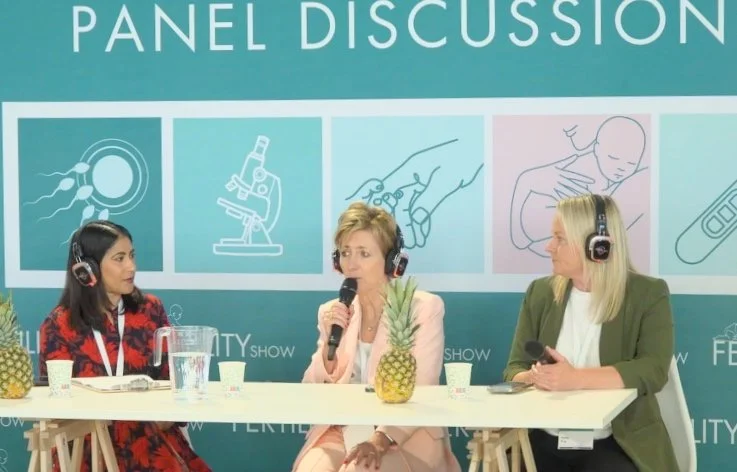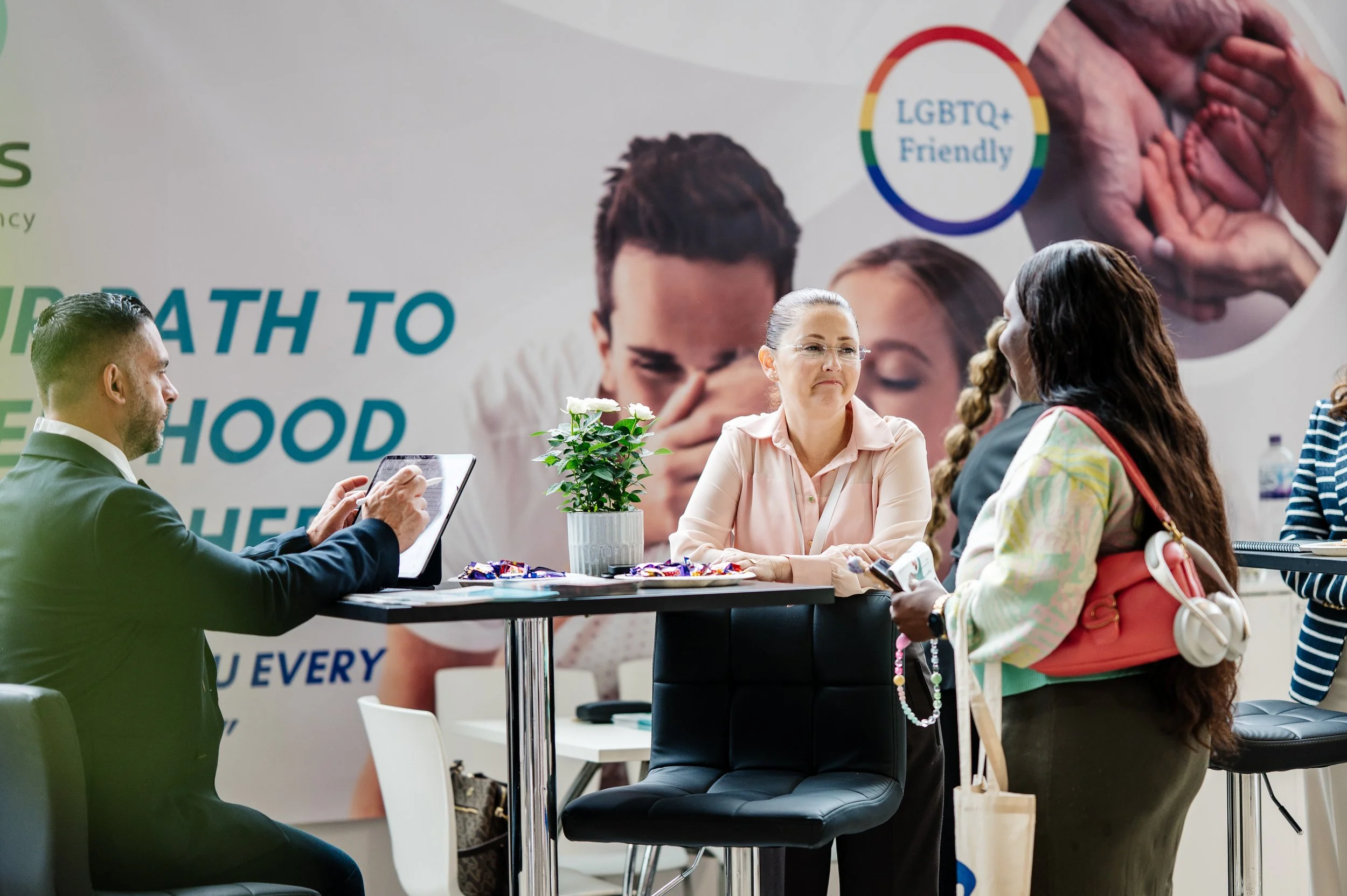Exploring LGBTQ+ Pathways to Parenthood: Insights from The Fertility Show 2025
This year’s Fertility Show opened up an honest and moving conversation around the many ways LGBTQ+ people are creating families. In a session hosted by Seetal Savla, we heard from fertility expert Dr Carole Gilling-Smith, Founder of The Agora Clinic and Hayley King, a parent through donor conception and donor-conceived herself. Together, they brought a mix of clinical insight and lived experience to the stage, offering guidance, empathy, and hope to those navigating their own journeys.
From left to right: Seetal Savla, Dr Carole Gilling-Smith and Hayley King
Inclusive Fertility Care: It’s About More Than Services
Dr Carole Gilling-Smith spoke about the importance of inclusivity in fertility care - not just in terms of what’s available, but how it’s offered. Clinics across the UK are becoming more aware of the diverse needs of the LGBTQ+ community, and many are actively working to provide respectful, inclusive, and affirming spaces for everyone, regardless of gender, sexuality, or relationship status.
This includes offering donor conception, surrogacy pathways, and fertility preservation - with emotional support woven throughout. It’s not just about ticking boxes, but creating environments where people feel genuinely seen.
Fertility Options: Different Routes, Shared Goals
The path to parenthood is rarely straightforward, and for LGBTQ+ people, it often comes with extra layers of complexity. The session unpacked the key routes available today:
For same-sex female couples:
Options include donor sperm insemination at home or in a clinic. While home insemination may feel more personal, treatment in a regulated clinic ensures legal parenthood and thorough screening. Shared motherhood - where one partner provides the egg and the other carries the pregnancy - is another option that some couples explore.
For same-sex male couples:
Surrogacy remains the main pathway. Most couples opt for gestational surrogacy, where an egg donor and surrogate are involved. Legal clarity is vital here, and many fertility professionals help couples navigate the necessary processes to establish parenthood post-birth.
For transgender individuals:
Fertility preservation, such as egg or sperm freezing, is available and often supported by the NHS. When the time is right, trans individuals and couples can explore options like IVF, insemination, or surrogacy - ideally in clinics that understand and respect their specific needs.
It’s Not Just Medical — It’s Emotional
Dr Gilling-Smith reflected on something that often gets overlooked: the emotional toll of fertility treatment. Support and information are essential, but so is space to talk, to feel, and to process. Increasingly, clinics are offering not just procedures, but wraparound care — whether that’s access to counsellors, peer groups, or simply practitioners who take the time to listen.
Legal Clarity, Especially Around Surrogacy and Donor Conception
Legal support is a key part of the fertility journey - particularly for those using donors or surrogates. In the UK, children conceived through donation have the right to access identifying information about their donor once they turn 18. This is something worth considering, especially for those exploring treatment abroad where laws may differ.
The session reminded us that clarity early on can help prevent complications later, and many clinics now work closely with legal professionals to help patients understand their rights and responsibilities from the start.
Personal Experience Matters
Hayley King shared her own story - one rooted in both personal and family history. As someone who is donor-conceived and now a parent through donor conception herself, she spoke powerfully about the importance of finding a clinic that genuinely welcomes LGBTQ+ patients.
Her advice? Look for signs of true inclusion — clinics that respect pronouns, use inclusive language in their materials, and create an environment where no one has to explain or justify their family dynamic. Virtual tours, open days, and honest conversations with staff can help you find the right fit.
A Landscape That’s Evolving — Slowly, But Surely
This session wasn’t just about the clinical facts — it was a reminder that fertility is deeply human. The needs of LGBTQ+ people are finally being recognised in more mainstream fertility care, but there’s still work to be done to make every journey feel safe, supported, and equal.
If you're exploring your own route to parenthood, there are growing communities and resources out there — from legal advice to emotional support and everything in between. Whether through clinics, charities, or peer networks, finding the right support can make all the difference.
Because every path to parenthood is valid - and everyone deserves to feel included along the way.




